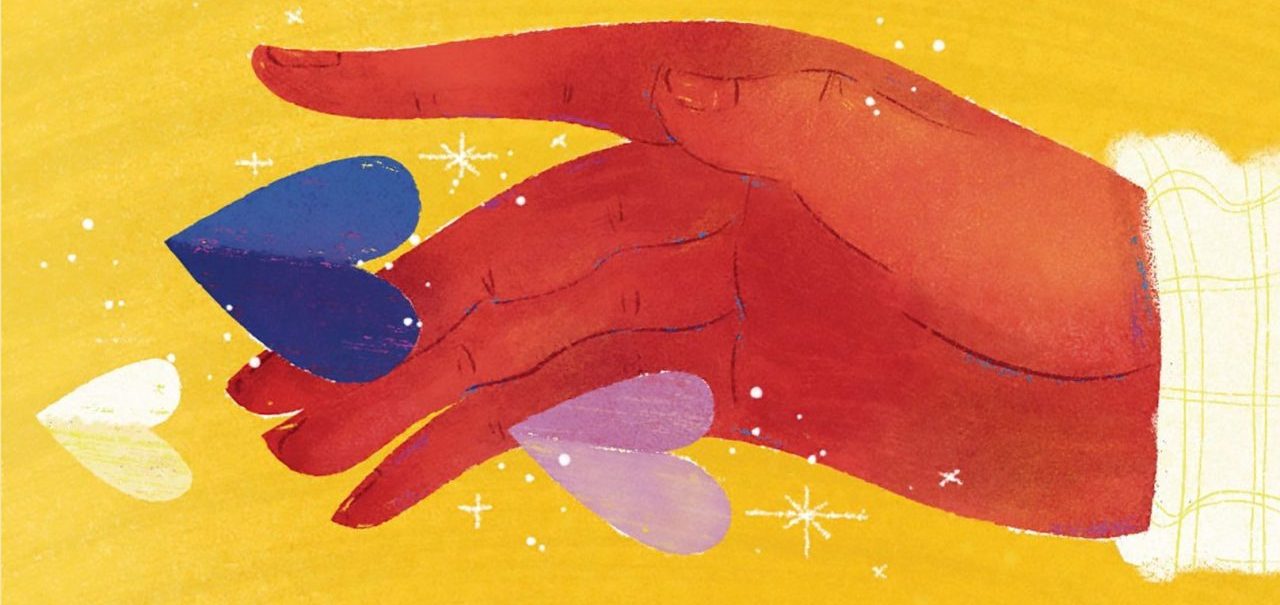
Editor’s note: In this season of giving, we asked some of the region’s nonprofit leaders to answer a simple question: Why is charitable giving so important in our society?
Part II

Laura Kelly. Brothers Brother
Charitable giving builds a foundation for a better future by promoting understanding, kindness, and collective efforts towards positive change. When members of a community engage in charitable acts together, it can build a network of support and goodwill, ultimately leading to a stronger and more resilient local fabric. A culture of generosity creates compassionate and united communities that are more likely to collaborate to work towards shared goals for the greater good. When people feel connected to their community, they are more likely to extend empathy and understanding to those in other parts of the world. This sense of connection can drive individuals to want to help those in need globally and be more generous on a global scale with humanitarian aid.
Rachel Petrucelli, UPMC Children’s Hospital Foundation
Every day, people in our own community find themselves in frightening, challenging, and sometimes life-altering circumstances. Making a charitable gift is an action we can all take to counter the injustices of the world and lift our neighbors up when a crisis is weighing them down. It is an act of benevolence that, in addition to providing aid to others, heals our souls and fills our hearts with a sense of purpose. Furthermore, when many people come together to support a common cause, we can achieve an impact that no single person or organization could ever achieve alone. I am constantly humbled to witness this kind of impact at UPMC Children’s Hospital of Pittsburgh — where exceptional care for children, help for families in need, and medical breakthroughs are all possible with support from hundreds of generous donors. Every charitable gift we make, regardless of its size, makes a difference.


Dr. Heidi Ondek, Western Pennsylvania School for the Blind
Charitable giving is vital to making our society successful. At Western Pennsylvania School for Blind Children, our students would not have access to many of the resources they utilize without charitable giving. For example, thanks to our gracious donors, we were able to create an outdoor classroom, including a large cold-water aquarium, to offer environment-based STEAM learning opportunities for our students. Receiving this support enables the school to create unique and accessible learning spaces for our exceptional learners. It’s a powerful thing to know that you can change someone’s life, regardless of how big or small your donation is. The benefits of charitable giving are innumerable. You can enhance your personal values, make a positive impact within your community, and inspire those around you to do the same.
Roxann Booser, The Maridon Museum
Charitable giving is important to our society on three fronts. First, for helping to keep organizations in business so they may serve their communities. Many organizations, particularly nonprofits, depend on charitable giving to continue in their mission. By their nature, nonprofit missions include something for the greater good, be it health care, education, culture, homeless animals, to name a few. Second, organizations employ people from their communities, thus giving people the opportunity to provide for their families. This extends to improving the quality of life for them and others in the community with basic economic principles. Third, charitable giving is beneficial to the donor. It gives you a real opportunity to have an impact on available services, and your gift may be tax deductible. Plus, it just makes you feel good. Society needs charitable giving in order to maintain and grow our quality of life.


Silvia Filippini-Fantoni, The Westmoreland Museum of American Art
Art education in schools faces challenges, with many cutting programs because of budget constraints. Museums step in to fill this gap, offering creative opportunities for children. These institutions become vital partners in nurturing creativity, providing a unique environment for hands-on engagement with art, history, and culture. These experiences not only cultivate a love for the arts but also foster critical thinking, problem-solving, and a deeper understanding of the world. Museums serve as dynamic spaces where children can express themselves, gain cultural insights, and develop skills beyond traditional classrooms. Charitable giving to museums is crucial in this context, as it directly supports these creative opportunities for children who otherwise may lack access to art education. It underscores museums’ pivotal role in enriching young people’s lives and ensuring that art thrives as a vital form of expression and exploration.
Kyle Houser, Pittsburgh Center for Arts and Media
Nonprofits support our communities in a wide range of ways and rely on charitable giving to keep doing what they do. The generosity of our audience, community, and those who follow what we do is one of the many ways we can provide access to the resources they love. Whether $5, $50, $500 or $5,000, every charitable gift of any amount shows us your support and belief in our mission. It validates the community’s shared belief in the work we do to achieve our goals and overall mission. Nonprofit organizations are a key part of the systems in our society, and support by individuals is one of the many ways we keep our doors open and programs going. In short, we couldn’t do what we do and serve the thousands of people we serve each year without charitable giving — the work we do would be significantly less impactful.


Jennifer N. March, Family House
I have had the privilege of working for mission-driven nonprofits such as Family House that rely on charitable giving for sustainability. I find that giving begets giving, and that awareness of a need is the seed that propagates philanthropic involvement from the community, in the form of funding as well as volunteerism. Pittsburgh was built on philanthropy. Thanks to a few families with a passion for southwestern Pennsylvania who poured their hard-earned wealth into this region during its formative years, Pittsburgh has become a destination city: for travel and leisure, world-class medicine, arts and entertainment, for students seeking a quality education. More than ever, young professionals and families are choosing Pittsburgh over other metropolitan areas. With continued charitable giving on the part of community stakeholders, Pittsburgh will continue to thrive.





